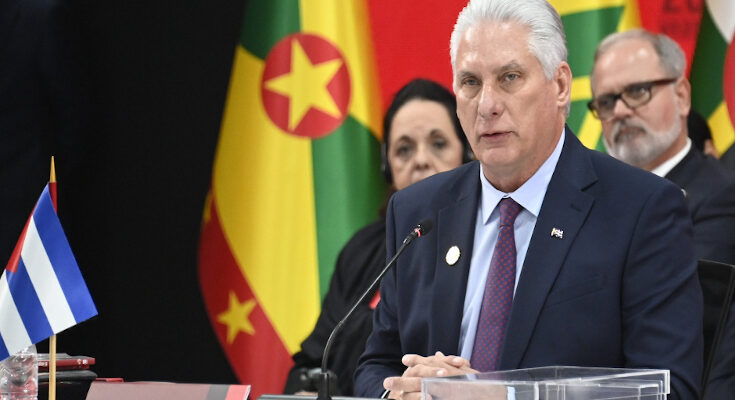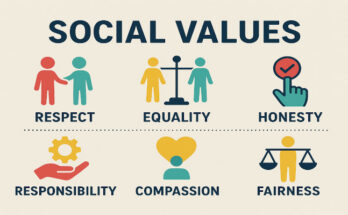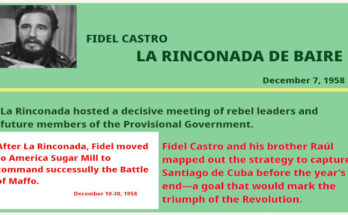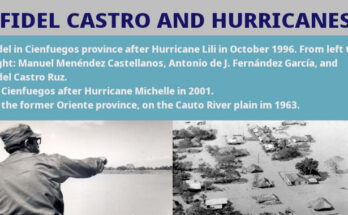Miguel Díaz-Canel Bermúdez, first secretary of the Central Committee of the Communist Party of Cuba and president of the Republic, delivered a speech at the 24th Summit of the Bolivarian Alliance for the Peoples of Our America-People’s Trade Agreement (ALBA-TCP), in Caracas, Venezuela, on December 14, 2024.
The Cuban president initially referred to the fact that the Alliance grows stronger at the regional level after the incorporation of new members St. Kitts and Nevis, Grenada and St. Lucia, a fact that contributed to ALBA-TCP becoming “a space of fraternity, solidarity, cooperation, respect, unity, struggle for the interests of the dispossessed; voice of the voiceless; articulate defense of brothers in history against dependence and subordination to imperialism and regional oligarchies.”
He also alluded to the constant threat posed by the collusion of imperialism with the oligarchies of the region that promote violence, political persecution and terror to destabilize governments that do not play along and choose sovereignty and independence for their economic, political and social development.
Díaz-Canel warned that “a profound reform of the current international order is therefore necessary, so that solidarity and cooperation may finally prevail over differences… and the need for a new international financial architecture, which closes the abysmal gap that today separates the North and the South and provides fair treatment to developing countries in the decision-making process and in access to sources of financing.”
The Cuban President denounced once again before the Alliance the brutal economic and financial blockade officially imposed on Cuba since 1962 by the U.S. government and the unilateral sanctions aimed at seeking to suffocate the Cuban people.
He acknowledged the international support against these arbitrary acts by the United States and at the same time repudiated the unjust inclusion of Cuba in the list of countries that sponsor terrorism.
On the other hand, Díaz-Canel stated that Cuba ratifies its willingness to dialogue towards a relationship with the USA “based on sovereign equality, mutual respect […] and its determination to defend its sovereign right to build a future of its own, independent, socialist, free from foreign interference and committed to peace, sustainable development, social justice and solidarity.”
Likewise, the Cuban President ratified Cuba’s commitment to the defense of the Proclamation of Latin America and the Caribbean as a Zone of Peace and the island’s solidarity with the countries present that have suffered attempts of destabilization and external interference.
He also expressed his firm support to the Bolivarian Revolution presided over by Nicolás Maduro, and to the government of Nicaragua, headed by Daniel Ortega, his unconditional support to the Plurinational State of Bolivia.
The Cuban leader condemned in the space of the Alliance “the crimes of genocide, crimes against humanity and apartheid committed by Israel […] for 75 years against the Palestinian people; as well as the attacks perpetrated […] by Israel against the Palestinian people […] against the Palestinian people […]. […] the attacks perpetrated by Israel against friendly nations such as Lebanon, Syria and Iran.”
Furthermore, Díaz-Canel acknowledged the role played by the Executive Secretariat in promoting more than 70 communiqués and numerous actions to advance the ambitious, but necessary, Strategic Agenda 2030, on the one hand; and on the other hand, the solidarity with Cuba of the member countries.
The Cuban President announced that “in the coming days the Cuban Revolution will turn 66 years old, and we will do so with the invariable willingness to face and overcome the greatest challenges that we learned in the school of Fidel, Raul and the heroic José Martí Centennial Generation that preceded us.”
And finally, he urged ALBA-TCP to continue advancing in constant search and concretion of projects for the economic development and dignity of our America, which in his opinion, represents the debt we owe to Bolivar and Marti, to the founding fathers of the independence of Latin America and the Caribbean, to which he added: “We owe it to Antonio Jose de Sucre, who led the victory of the Battle of Ayacucho 200 years ago. And we owe it especially to Fidel, to Chávez and to our peoples.”
(With information from cubadebate.cu)




